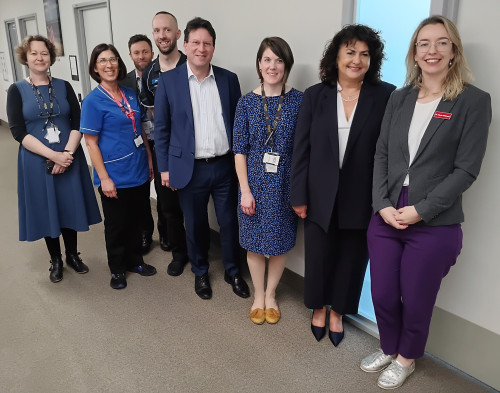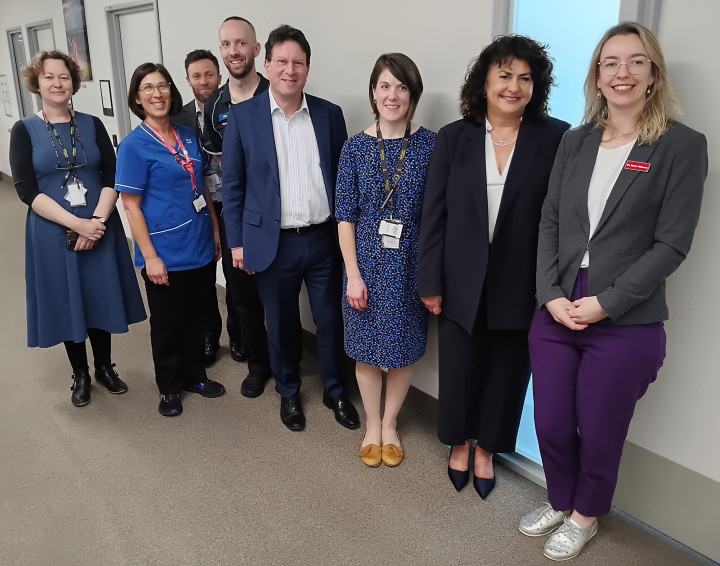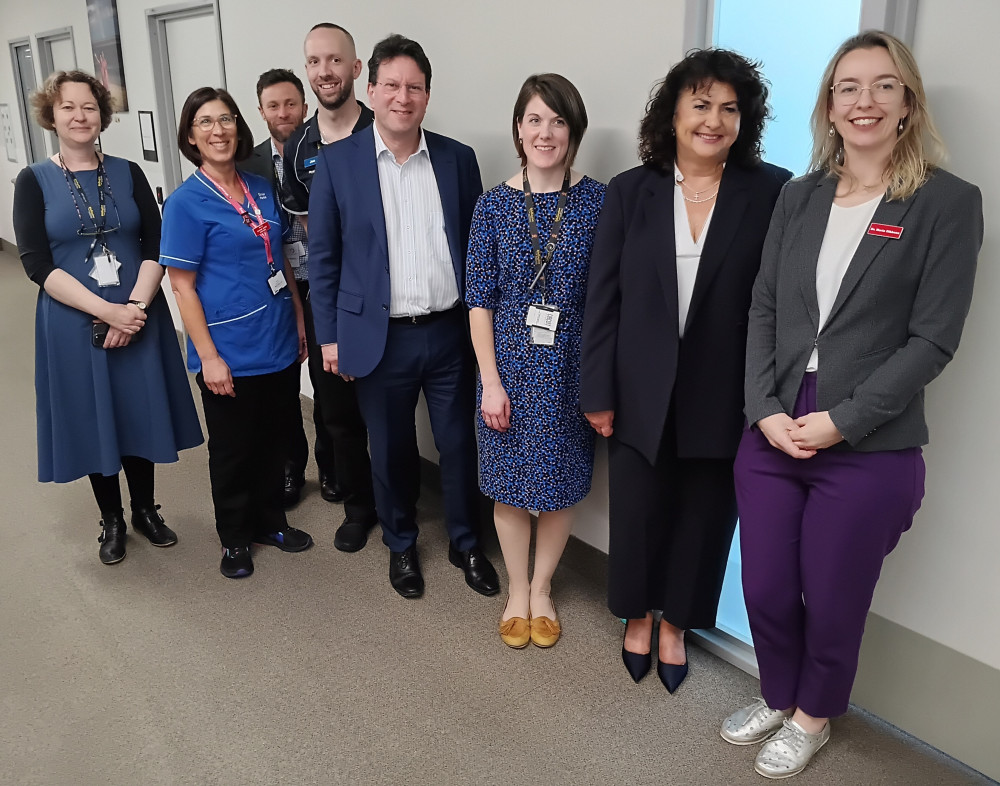A new service at Wellington Hospital helping older people before and after surgery is resulting in shorter hospital stays and improved patient flow.
The ward-based ‘Perioperative Older Persons Service’ (POPS) was trialled over six months from July 2024 to January this year and, based on its success, has just opened on a permanent basis. The service aims to:
- optimise patients’ health before their operation (e.g. ensure their blood results are addressed, they’re on the right medications and doing breathing exercises)
- work with patients post-surgery to ensure they recover as quickly as possible to reduce their time in hospital (e.g. getting them moving as appropriate to avoid deconditioning, managing pain and avoiding complications like delirium).
Wellington Hospital geriatricians Dr Katie Thorne and Dr Maria Gibbons ran the pilot and were a key component of a multi-disciplinary team including nurses, surgeons, anaesthetists, allied health members, junior doctors, health care assistants and palliative specialists - all involved in the care of these patients.
“We were somewhat like the conductor of an orchestra, working with the other specialists involved to achieve the best outcome for our patients, as well as ensuring the patients understood what each specialist would be doing during their admission,” Katie says. “It was great working in this kind of team environment.”
As well as helping prepare patients if they were having surgery and working with them afterwards, the geriatricians had an important role discussing with them what outcome their surgery was going to achieve and ensure they had realistic expectations. Some patients chose a ‘non-operative’ approach rather than having surgery once they had this information.
“Whether or not to have the operation was always a shared decision between patients, whānau and healthcare staff,” Katie says. “Geriatricians have a vitally important role to protect the independence of older patients. Increasingly we’re working with surgery and anaesthetic services in perioperative medicine – a term used to describe pre-operative, surgical and post-operative stages. Services like POPS have been running in the UK for many years and are gradually being developed across Australia and New Zealand.”
Ruth Stephen, Charge Nurse Manager for Ward 7 North, provided an integrated and enhanced pathway for patients within the surgical service: “Having the geriatricians working with our surgical patients during both the preoperative and postoperative phases led to improved outcomes and more efficient discharge planning for our older patients. And the holistic approach to patient wellbeing, means surgical decisions are better aligned with each patient’s best interests.”
As well as better outcomes, the pilot showed the service shortens the average length of hospital stays and improves patient flow. While the service covered more acute patients (those requiring urgent surgery), people having elective surgery deemed at high risk, were included. So the service also helped achieve the ‘shorter wait times for elective treatment’ health target because shorter hospital stays overall mean a quicker turnaround time for operations and less time waiting for surgery or risk of cancelled operations.
“It was very satisfying to make such a difference to the hospital experience of these patients, get to know them so well throughout the process and improve their outcomes,” Maria says. “We received great feedback from many families of our patients, so we’re thrilled it’s been given funding to become permanent later this year. Improving flow and length of stay on surgical wards will directly contribute to improved access to timely planned care for the region.”
Associate Minister of Health Hon Casey Costello visited the service last Friday and says the benefits of it are a great example of teamwork and patient-centred innovation delivering results.



POPS team and other clinical specialists with the Minister